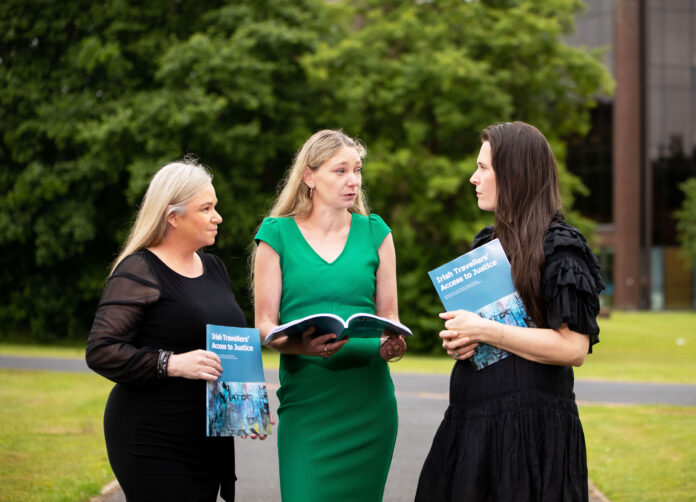
A STUDY by researchers at University of Limerick has examined for the first time the relationship between Travellers and the Irish criminal justice system– particularly with the judiciary and Gardaí.
The UL researchers spoke with one in every 100 Travellers in Ireland from 25 of the 26 counties.
The research concluded that among the key barriers to accessing justice is institutional racism towards Travellers found to be prevalent in the criminal justice system.
Travellers’ trust in the criminal justice system is extremely low and that fears of wrongful arrest, excessive use of force, wrongful conviction, disproportionately high sentences and wrongful imprisonment frame the way Travellers engage with and experience the criminal justice system.
Sinead Gibney, Chief Commissioner of the Irish Human Rights and Equality Commission, said it was abundantly clear that the relationship between Travellers and the criminal justice system too often starts from a point of mistrust, developed over decades.
Professor Amanda Haynes, Department of Sociology, UL added that the report shows that Travellers do not trust the Irish criminal justice system to treat them fairly, and that their mistrust is grounded in personal and shared experiences of unsatisfactory and sometimes biased treatment at the hands of criminal justice professionals, as victims and suspects.
“While Travellers participating in this research identified examples of excellence among police and judges, these experiences were described as the exception rather than the rule.”
Professor Jennifer Schweppe, UL’s School of Law, said the research shows that Travellers are simultaneously over policed as suspects and under policed as victims.
“Justice is not seen to be done in Irish courtrooms by members of the Traveller community,” she added.
Dr Sindy Joyce, Lecturer in Traveller Studies in UL’s Department of Sociology, said the results would come as no surprise to members of the Traveller community, whose experiences and perceptions of the criminal justice process are unequivocally linked to both their identity as a historically traditionally nomadic community, and their present day status as a racialised indigenous ethnic group in Irish society.
Key findings from the research include:
Half of the Travellers responding to the survey were victims of criminal offences in the five years prior to the survey; only one-fifth had been arrested in that time period;
Half of those surveyed had been present in a home that Gardaí entered without permission. In only 11 per cent of those cases was a search warrant shown to someone present in that home;
Travellers report hearing expressions of overt racism by gardaí and judges;
In the context of stop and search, Travellers recounted experiences of Garda harassment, threats to abuse power, Garda provocation, Gardaí deliberately escalating conflict and degrading treatment;
64 per cent of Travellers who were in Garda custody in the five years prior to the survey did not feel safe when they were in custody;
When asked about the last time they were stopped by a Garda in the five years prior to the survey, 59 per cent stated that they believed they were stopped because they are a Traveller.
The levels of trust that Travellers have in the Gardaí is approximately half that of the general population; trust levels in the police are lower again among those who have been victims of crime;
Travellers have a significantly lower level of trust in judges than the general population has in the legal system;
The researchers made extensive recommendations, including:
The introduction of an ethnic identifier throughout the criminal process from the point of reporting to the point of sentencing, including entry and search of homes and stops and searches which must be recorded.
The development, publication, funding and implementation of a criminal justice strategy for the Traveller community.
The establishment of a robust and effective independent complaints body to respond to complaints regarding any criminal justice agency or professional including customs officers and judges.









